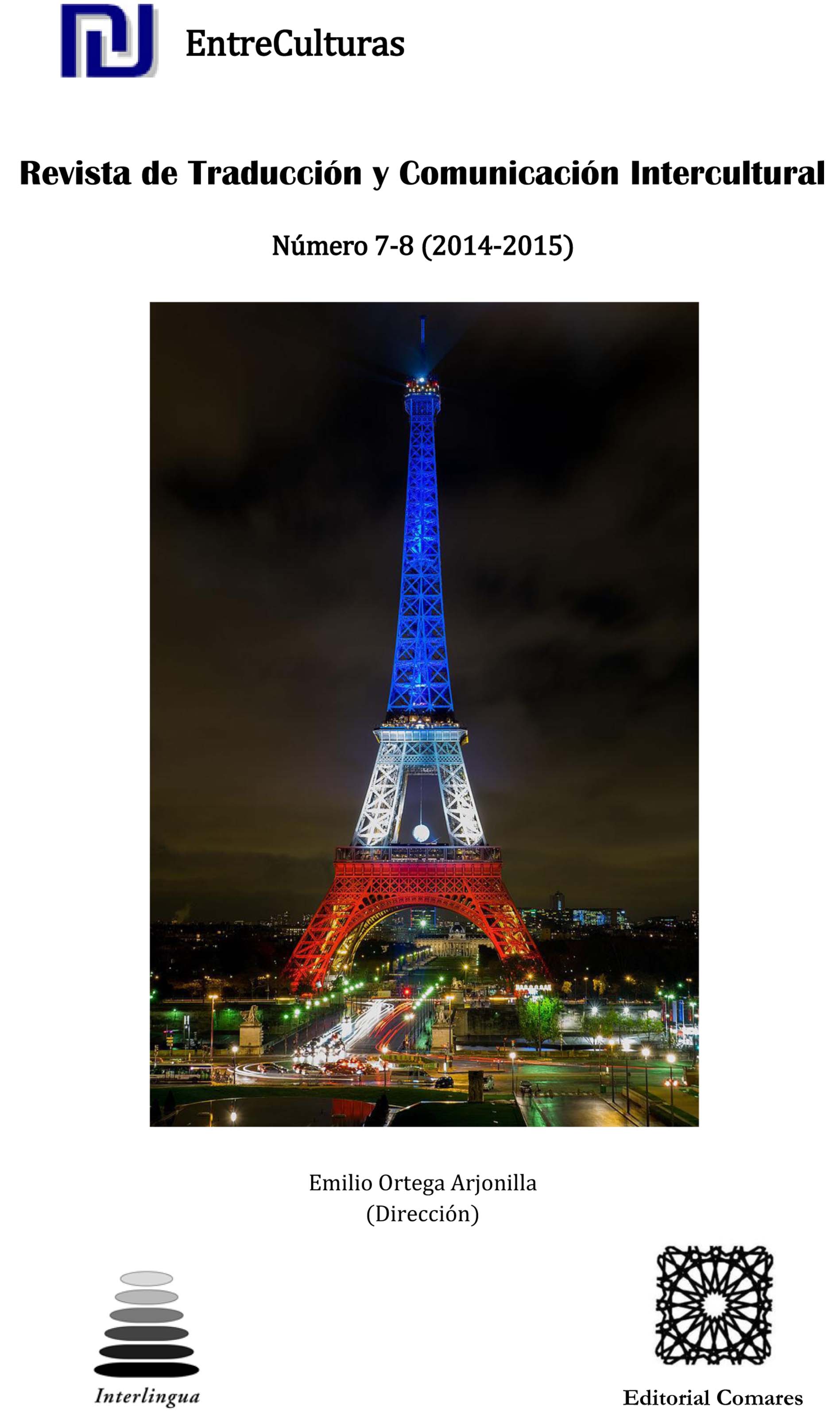DE CAMINO HACIA UNA TRADUCCIÓN POST-POSITIVISTA
DOI:
https://doi.org/10.24310/Entreculturasertci.vi7-8.11329Keywords:
Posmodernism, Post-positivism, Post-structuralism, Beat Generation, TranslationAbstract
This research responds to the urgent need of finding a suitable translation theory that matches the philosophical principles of posmodernism in order to translate its literature. Posmodernism is an era in which referentiality is murdered and reality, which is socially constructed through language, conceived as something intagible and unrepresentable. In this sense, posmodernism also neglects the univocity and absoluteness of language in favor of its multiple voices. This new vision shed on life and its artform requires a rethinking of the terms in which translation has been traditionally defined. Thus, the main goal of this research is to demonstrate the link between those translation theories adscribed to post-positivism and post-structuralism and the posmodernist movement on the basis of an analysis of the literature of the Beat Generation.
Downloads
Metrics
References
Barthes, Roland(1968). Le Bruissement de la langue. Paris, Éditions du Seuil. Citado por la traducción española de Cristina Fernández Medrano (1987): El susurro del lenguaje: Más allá de la palabra y la escritura. Barcelona, Paidós.
Charter, Ann (1957 [1972]). “Prólogo” en: Jack Kerouac (ed.): On the Road. Strand (Londres), PenguinBooks Ltd.
Coy, J. y Juan José Coy (1976). La anarquía y el orden: una clave interpretativa de la literatura norteamericana. Madrid, Ediciones José Porrúa Turanzas, S.A.
Eco, Umberto (2003). Direquasi la stessa cosa: Esperienze di traduzione. Bompiani, Milán. Citado por la traducción española de Helena Lozano (2008): Decir casi lo mismo. Experiencias de traducción. Barcelona, Lumen.
Hutcheon, Linda (1988). A Poetics of Postmodernism: History, Theory, Fiction. New Fetter Lane (Londres), Routledge.
Hutcheon, Linda (1984). Narcissistic Narrative: the Metafictional Paradox. Nueva York, Methuen, Inc.
Kerouac, Jack (1957). On the road. Nueva York, Viking Press. Citado por la traducción española de Martín Lendínez (1986). En el camino. Pedró de la Creu (Barcelona): Anagrama.
Kerouac, Jack (1957 [1972]). On the Road. Strand (Londres), Penguin Books Ltd.
Norris, C. (1998). “Deconstruction, Posmodernism and Philosophy of Science: Some Epistemo-critical Bearings”, Cultural Values, 2: 1, 18-50.
Norris, Christopher. (1982 [2002]). Deconstruction. New Fetter Lane (Londres), Routledge.
Stephenson, Gregory (1990). The Daybreak Boys: Essays on the Literature of the Beat Generation. Southern Illinois, Southern Illinois University Press.
Tymoczko, Maria (2007). Enlarging Translation, Empowering Translators. Manchester, St. Jerome.
Tymoczko, M. y E. Gentzler (2002). Translation and Power. Amherst/Boston, University of Massachusetts Press.
Vidal Claramonte, M. Carmen África (2012). La traducción y los espacios: viajes, mapas, fronteras. Granada, Editorial Comares.
Vidal Claramonte, M. Carmen África (2005). En los límites de la traducción. Granada, Editorial Comares.
Vidal Claramonte, M. Carmen África (1990). Hacia una patafísica de la esperanza. Universidad de Alicante, Secretariado de Publicaciones de la Universidad.
Vidal Claramonte, M. Carmen África (1989). ¿Qué es el posmodernismo? Universidad de Alicante, Secretariado de Publicaciones de la Universidad.
Vidal Claramonte, M. Carmen África (1988). Bajo el signo de Saturno o la apertura posmoderna. Universidad de Alicante, Secretariado de Publicaciones de la Universidad.
Downloads
Published
How to Cite
Issue
Section
License
All contents published in Entre culturas. Revista de traducción y comunicación intercultural are protected under the Creative Commons Attribution-NonCommercial-ShareAlike 4.0 International (CC BY-NC-SA 4.0) license. All about this license is available in the following link: <http://creativecommons.org/licenses/by-nc-sa/4.0>
Users can copy, use, redistribute, share and exhibit publicly as long as:
- The original source and authorship of the material are cited (Journal, Publisher and URL of the work).
- It is not used for comercial purposes.
- The existence of the license and its especifications are mentioned.
There are two sets of authors’ rights: moral and property rights. Moral rights are perpetual prerogatives, unrenounceable, not-transferable, unalienable, imprescriptible and inembargable. According to authors’ rights legislation, Entreculturas. Revista de traducción y comunicación intercultural recognizes and respects authors moral rights, as well as the ownership of property rights, which will be transferred to University of Malaga in open access. The property rights are referred to the benefits that are gained by the use or the dissemination of works. Entreculturas. Revista de traducción y comunicación intercultural is published in an open access form and it is exclusively licenced by any means for doing or authorising distribution, dissemination, reproduction, , adaptation, translation or arrangement of works.
Authors are responsable for obtaining the necessary permission to use copyrighted images.





7.png)
